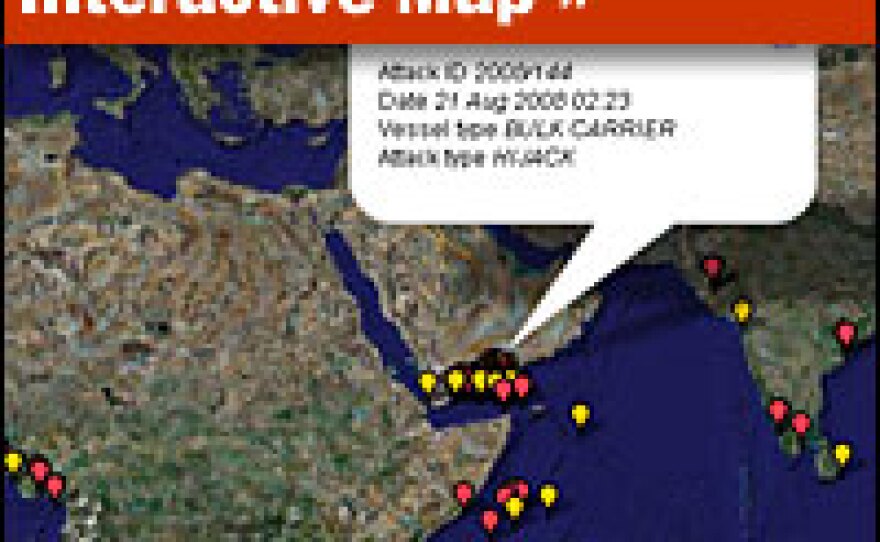
When the crew of the Maersk Alabama turned back Somali pirates on Thursday, they put a spotlight on one element of their training: Maritime schools in the United States are teaching piracy evasion techniques as part of the regular curriculum.
Joseph Ahlstrom, who teaches a course to certify security officers at State University of New York's Maritime College, said pirates have moved away from staging "hit-and-run purse snatchings" on the high seas to focusing on the seizure of ships, hoping for the big money that sometimes comes from holding ships and crews for ransom.
"I believe the reason it's getting worse is that when you pay pirates, you encourage them to commit more piracy," Ahlstrom said. "If I live in a country where the average salary is $50, and I can get $1 million, I'm willing to risk my life."
Ahlstrom said Capt. Richard Phillips and his second-in-command, Capt. Shane Murphy, would have gotten an 'A' for the way they responded to having their ship boarded by pirates Wednesday. "They did an outstanding job," he said.
According to the International Maritime Bureau's Piracy Reporting Center, 931 crew members were taken hostage last year — a stark increase from the 359 crew members who were taken hostage in 2003. The center, which tracks piracy incidents each week, reported that 49 vessels were hijacked in 2008.
Students are taught to identify that they are in waters that are frequented by pirates, alert the crew and be on guard — all things that Murphy did before the attack. He said ships' security officers also drill the crews often so they are prepared if the ship is boarded — and they alert authorities quickly if they are boarded. The Maersk Alabama crew appeared to have done all those things.
Other things students are taught to do are secure the doors, put a security officer on the fantail, and have roving security on the deck. Ahlstrom said the crews of 20 to 25 are usually given special security duties when they are in pirate waters.
Some ships also have private security, or they may have a crew member on board who has small arms training. However, firing a weapon on board a ship poses risks, he said. "You don't want to be shooting, because it could cause an explosion on a small vessel."
Copyright 2022 NPR. To see more, visit https://www.npr.org. 9(MDAzMjM2NDYzMDEyMzc1Njk5NjAxNzY3OQ001))






